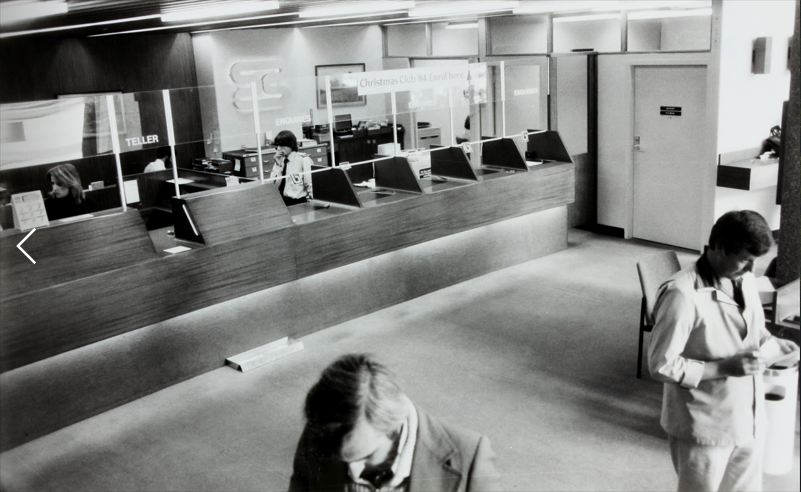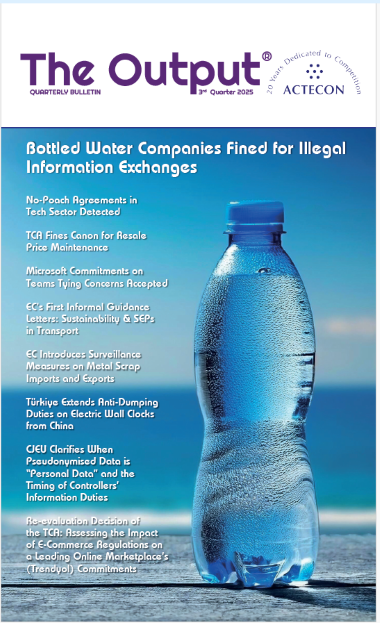The Turkish Competition Authority Sets the Boundaries of its “Technology Undertaking” Definition
| Competition Law

The Turkish Competition Authority Sets the Boundaries of its “Technology Undertaking” Definition
Article by Erdem AKTEKİN, Nabi Can ACAR and Helin YÜKSEL
Introduction
On 4 March 2022, the Turkish Competition Authority (the “TCA”) increased the notification thresholds set in its merger regulation, i.e., Communiqué No. 2010/4 on the Mergers and Acquisitions Calling for the Authorisation of the Competition Board (“Communiqué No. 2010/4”). In addition to the amendment of turnover thresholds, the TCA added an exception to these thresholds for transactions involving acquisitions of what it defines as “technology undertakings.”
As per the renewed Communiqué No. 2010/4, “the TL 250 million thresholds that are mentioned under (a) and (b) in the first paragraph, are not applicable in the acquisitions of technology undertakings that (i) are active or (ii) have R&D activities, in the Turkish geographic market or (iii) that provide services to customers in Turkey.” The TCA defines technology undertakings as undertakings active in areas of digital platforms, software and gaming software, financial technologies, biotechnology, pharmacology, agrochemicals and health technologies, or assets related to these undertakings.
It seems clear the TCA introduced this amendment to catch “killer” acquisitions of technology undertakings that engage in the development of valuable products but do not yet have significant turnover. In other words, the purpose behind the exception regarding technology undertakings is to enable the TCA to review the mergers and acquisitions of start-ups by undertakings with significant market power in digital markets with the potential of initiating a disruptive innovation wave even if those start-ups do not generate a significant turnover. While the German and Austrian merger control regimes have introduced transaction value thresholds in addition to the turnover threshold to achieve similar goals, the TCA chose to make the unique amendment summarized above.
Both the threshold amendments and the exemption entered into force as of 5 May 2022. After almost six months of enforcement, we now have some guidance, in the shape of decisions, on how the TCA determines whether an undertaking shall be considered a technology undertaking or not. This article examines these decisions to determine whether this six-month period of enforcement has provided sufficient legal clarity in terms of the interpretation of the rather vague definition of technology undertakings.
The setting after the amendments
Considering that the TCA’s definition of a technology undertaking was drafted in a rather general manner, the questions about which undertakings due to which of their activities can or cannot be considered as a technology undertaking quickly rose to the top.
First, since the definition covers undertakings that are active in the areas of software and game software, this raised the question of whether the TCA will interpret the concept of being active in the area of software broadly to include companies in many sectors that develop their own software to cater services to their customers. For example, many companies build and leverage some sort of platform through which they provide access to their customers to their products. Given that their operations are not focused on developing and selling software but rather using it as a means to enhance the experience of the customers, it was mostly expected that these companies would be out of scope as the contrary approach would not serve the purpose of the amendments.
Second, the definition included “areas of activity” such as “biotechnology, pharmacology, and agrochemicals,” which are unconventional sectors even for the busiest practitioners. The answer as to whether an activity by an undertaking would fall into these areas thus demanded imminent case law to follow.
Although we now have been provided with several cases dealing with the interpretation of technology undertakings, we see that room remains for sharpening the boundaries of what the definition entails. The following part will go over these decisions to highlight the important points that come from these.
How to set the boundaries of the definition of technology undertaking?
The decisions being examined all involve transactions that do not meet the notification thresholds, thus the TCA had to analyse the activities of the targets to see whether they can be considered as technology undertakings. In six cases, the TCA found that the activities of the target fell within the definition. We only have reasoned decisions for these six cases since the TCA does not publish reasoned decisions where it finds that a notified transaction does not meet the turnover thresholds and does not involve a technology undertaking. However, the other case also provides valuable information since it provides information on which activities the TCA does not consider as belonging to the definition of technology undertaking.
The first decision came just seven days after the exemption entered into force and it concerned a transaction to form a joint venture with the companies Citrix and TIBCO, which were under the sole control of Vista Equity Partners Management, LLC.[1] Since both companies are active in the development of software, applying the exemption to this transaction was pretty straightforward.
However, the second and third decisions that will be analysed show that categorizing a company in the area of software development may not be so straightforward on every occasion.
In Cinven Capital/International Financial,[2] which concerned the acquisition of sole control over International Financial Group Limited (“IFGL”) by Cinven Capital Management General Partner Limited, the Board found that IFGL’s activities fell under the scope of the fields of activities listed under Communiqué No. 2010/4. Under the decision, IFGL is stated to be active in providing savings and investment products through life insurance packages to individual investors and that the company’s Turkish turnover is mainly derived from the sales by a third-party distributor since the undertaking does not have any subsidiaries or affiliates in Turkey. However, IFGL is considered a technology undertaking and the decision states that the reason behind this is that the company provides services to a small number of its customers with digital access via digital platforms in the life insurance sector in Turkey. Therefore, in this decision, the TCA seemed to classify an undertaking using digital platforms as being active in the software market. However, although the decision does not provide much detail, IFLG’s activities probably are limited to being rather a conventional insurance company utilizing today’s technological tools.
However, we observe a different conclusion in a decision given one week later. In Nielsen/Brookfield,[3] which concerned the acquisition of indirect joint control over Nielsen Holdings plc by funds and/or investment instruments, the Board concluded that the transaction did not fall within the scope of Communiqué No. 2010/4 and was not notifiable. Even if the reasoned decision is not published, it is understood that Nielsen Holdings plc is not considered by the Board as a technology undertaking thanks to the TCA’s announcement concluding that the transaction is not notifiable. Desktop research shows that Nielsen Holdings plc utilizes data analytics tools to provide meaningful insights about market conditions and customer trends to their customers. Therefore, unlike the Cinven Capital/International Financial, the TCA here found that using software as a tool in providing other services is not within the scope of the listed activities of the exemption.
The Providence/Airties[4] was another clear one in this regard as it concerned the acquisition of sole control over Airties Kablosuz İletişim San. ve Dış Tic. A.Ş., a provider of wi-fi solutions and software services that enable broadband operators to deliver and manage wi-fi networks to residential customers. Thus, Airties’ software services were found to fall within the fields of activities listed in Communiqué No. 2010/4.
Another decision involved activities in the pharmacology sector. In Astorg/Corden,[5] the TCA concluded that considering that Corden Pharma Group produces application programming interfaces and ready-to-use pharmaceuticals, the target’s activities fell within the pharmacology sector and the turnover of the target would be within the exception.
Another interpretation of the concept is seen in Groupe Bruxelles/Affidea.[6] The TCA stated in the decision that “The target company, AFFIDEA, is a diagnostic imaging company operating in the biotechnology sector.” Since no further information is available on the activities of the target, the decision seems to be considering sales of diagnostic imaging devices as constituting activities in the biotechnology sector.
Finally, in CD&R-TPG/Covetrus,[7] concerning the acquisition of joint control over Covetrus Inc., considering that the activities of Covetrus are in the pharmaceuticals for animals and software sector, the Board evaluated that its activities may be included in the fields of “health technology” and “pharmacology,” and therefore, the thresholds of the parties would be subject to the exception. It is interesting to note that the TCA does not consider Covertus as a software company although it produces software but rather concludes that it “may” be considered to be in the health technology or pharmacology sectors.
Conclusion
Although only a small set of examples are now available, it can be seen that the way that the technology undertaking exemption was drafted creates some problems in classifying different types of activities under the categories listed in the communiqué, which thus negatively affects legal certainty around Turkey’s merger control regime. The lack of precedents and examples on the subject is revealed in the assessments made within the decisions.
It can be argued that the TCA should amend the legislation to bring some clarity. However, until that or until the TCA establishes enough decisions, it is definitely advisable for undertakings to stay on the safe side and consider notifying transactions that at first sight look to fall under the turnover thresholds where the activities of the target resonate with those that are listed in Communiqué No. 2010/4.
[1] The Board’s decision dated 12 May 2022 and numbered 22-21/344-149.
[2] The Board’s decision dated 18 May 2022 and numbered 22-23/372-157.
[3] The Board’s decision dated 26 May 2022 and numbered 22-24/395-BD.
[4] The Board’s decision dated 2 June 2022 and numbered 22-25/403-167.
[5] The Board’s decision dated 2 June 2022 and numbered 22-25/398-164.
[6] The Board’s decision dated 16 June 2022 and numbered 22-27/431-176.
[7] The Board’s decision dated 7 July 2022 and numbered 22-32/512-209.






